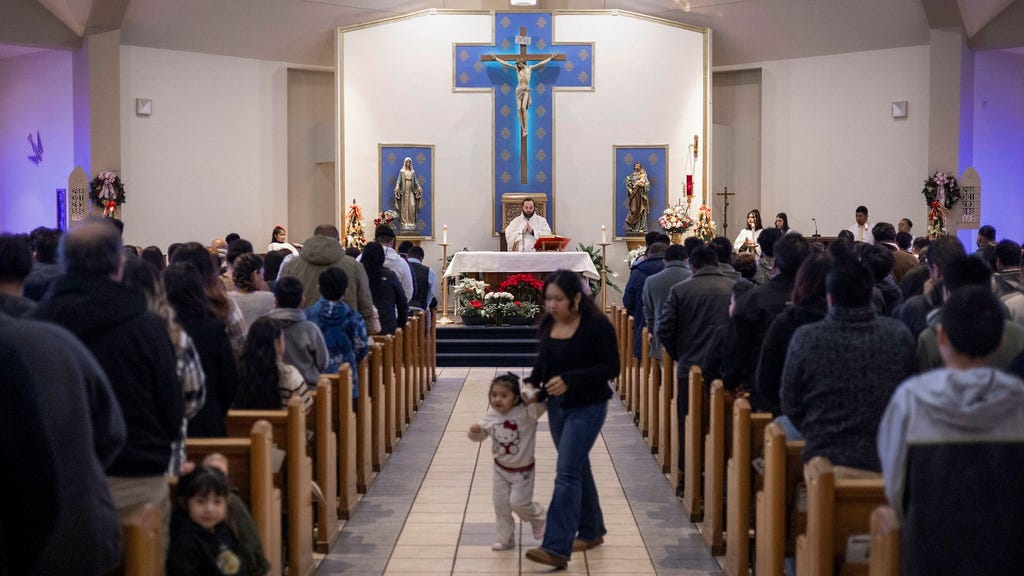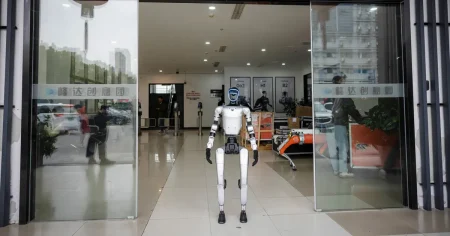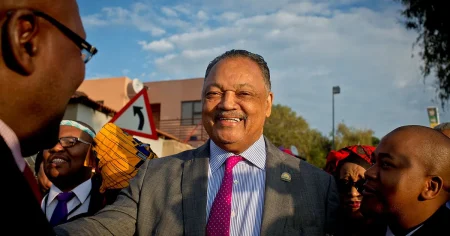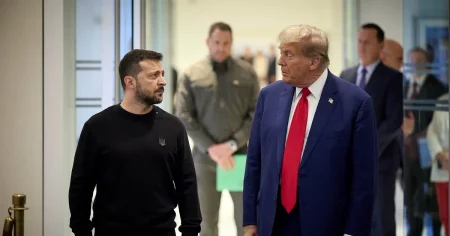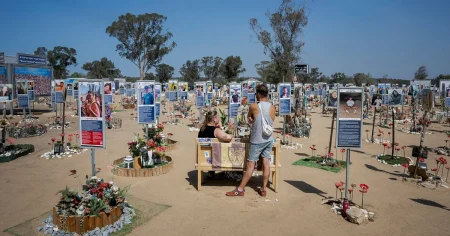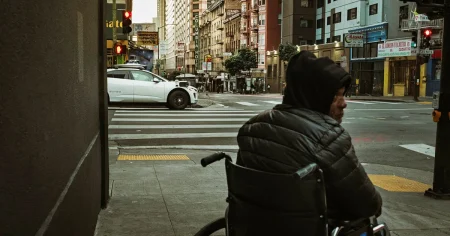The year was 2018, and the Southeastern Provisions meatpacking plant near Morristown, Tennessee, became the epicenter of a dramatic ICE raid, a stark symbol of the Trump administration’s hardline stance on immigration. For workers like Eugenia Lopezsanchez, the sudden appearance of federal agents was a terrifying experience. Torn from their tasks, they were herded together, their pleas to be released for their children’s sake falling on deaf ears. The raid, ostensibly targeting the factory owners for tax evasion facilitated by employing undocumented workers, effectively criminalized the workers themselves. Ninety-seven individuals were detained, sparking fear and panic throughout the community. The news of the raid spread quickly, leaving families in disarray. Hilario Hernandez received a chilling call from his wife, Alejandra Medoza-Cruz, informing him of her detention and her fear of deportation, leaving him to care for their children. The incident etched itself into the memories of the families affected, leaving lasting emotional scars.
The raid’s impact reverberated through Morristown. While some residents expressed fear of future mass deportations, the raid also brought about unforeseen consequences, revealing the complexities of immigration within the community. The raid exposed vulnerabilities but also ignited a spirit of resilience and solidarity. Hundreds gathered at a nearby elementary school, desperately seeking information about their detained loved ones. Veronica Galvan, a church worker, tirelessly livestreamed the scene, providing a vital link to information for the anxious community. Amidst the chaos, she secured permission to transform the local Catholic church into a sanctuary for the affected families. This act of compassion became a turning point, shifting the narrative of the raid from one of fear to one of collective action.
The transformation of St. Patrick’s Catholic Church into a haven for the immigrant community showcased the strength of human compassion. Donations poured in, providing food, clothing, and essential supplies. Volunteers, including teachers, psychologists, and lawyers, offered their services, transforming the church’s parish hall into a hub for legal aid and support. Colleen Jacobs, the church administrator, recalled the organized effort to provide free legal counsel, a crucial lifeline for navigating the complex immigration system. While the families faced significant challenges, including cultural barriers and fears of losing custody of their children, the community’s response demonstrated a remarkable level of support and empathy. This collective effort fostered a sense of belonging for the immigrant families, highlighting their integral role within the community as coaches, gardeners, neighbors, and fellow church members.
Though the raid had a devastating initial impact, it ultimately proved to be less effective in terms of deportations than perhaps intended. Only about 20 individuals were ultimately deported. Efren Olivares of the Southern Poverty Law Center argued that the raid’s true purpose lay in instilling fear within immigrant communities, creating an environment of ”state-sponsored terrorism.” However, the community’s resilience shone through. Advised by activists like Veronica Galvan not to sign voluntary deportation papers, many of the detained workers fought back, challenging the authorities on the grounds of racial profiling and excessive force. With the assistance of organizations like the SPLC, they filed a class-action lawsuit, ultimately securing an eleven million kronor settlement in 2023, a significant victory against discriminatory practices.
Years later, the Latino community’s presence in Morristown is undeniable. Their influence has grown, evidenced by the packed pews of St. Patrick’s Catholic Church during its trilingual services. Hilario Hernandez, now a church usher, expresses gratitude for his family’s reunification. New gathering spaces for the Latino community continue to emerge, demonstrating their growing integration into the town’s fabric. At La Quesadilla restaurant, three generations of a family – Thiago, an American citizen, his mother Blanca, protected under DACA, and her mother Eugenia, who secured a work permit after the raid – illustrate the diverse paths and statuses within the immigrant community. The story of Marcos Martinez, a former undocumented worker who now owns a successful contracting business, epitomizes the entrepreneurial spirit and the integral role of Latino labor in Morristown’s economy.
Despite the anxieties surrounding potential future immigration policy changes, there’s a sense of preparedness and hope within Morristown’s Latino community. The raid, while traumatic, served as a catalyst for empowerment. Veronica Galvan emphasizes their readiness, armed with knowledge of the deportation process and prepared with essential documents. Families like Hilario Hernandez and Alejandra Medoza-Cruz find solace in their faith and express a pragmatic outlook on the political landscape. While Eugenia Lopezsanchez still carries the emotional weight of the raid, many in the community, including business owner Marcos Martinez, express confidence in their contributions to the local economy and hope for a future where hard work and good character outweigh immigration status. This hope, tempered by experience, reflects the enduring spirit of a community that has faced adversity and emerged stronger and more united.





